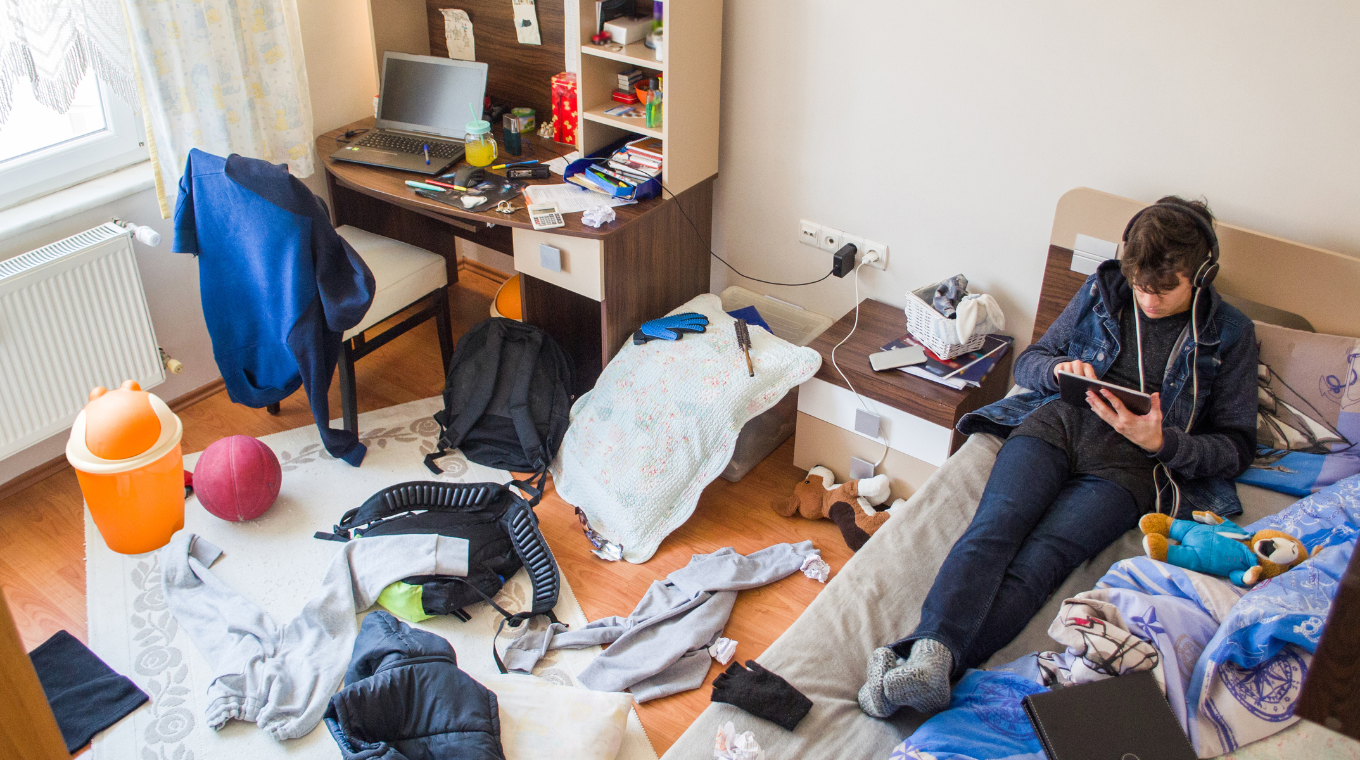
In This Article
Getting my teen boys to open up and talk to me is not easy. Conversations often go like this:
How was your day?
Fine.
Did anything interesting happen?
No.
How is so-and-so? Are you still hanging out with them?
Why are you asking me that?
There was a time when I couldn’t get my boys to stop talking. They would come home from school or from a playdate and tell me everything they did. And then, in what seemed like overnight, the free flow of information slowed down. In some instances, stopped.
Is it normal for a teen boy to become quieter?

“The most important thing from the outset is to understand that it’s completely normal, and I would even say appropriate for boys to withdraw,” Dr. Cara Natterson, pediatrician and author of Decoding Boys: New Science Behind the Subtle Art of Raising Sons, told Mom.com.
Some boys start out quiet and get even quieter, and some are chatty and then go silent. Boy or girl, teens turn the volume down at some point in their development, she said. You may start to see that kids around 12 years old start to value what their peers think more than their parents. Dr. Natterson said she doesn’t believe that teens don’t care at all what their parents think, but they don’t care the same way they did before.
I asked my almost 16-year-old why he thinks teen boys don’t always share their lives with parents and he said, “You’ve got to accept as a parent that your teenager is trying to become as independent from you as possible, while still living under the same roof.”
But do I have to accept it? Yes, he needs independence, but he also needs rules, guidance, and love.
How can you get teens to open up?

iStock
One way to get your teen to talk to you is to create a scenario where you don’t have to look each other in the eye, Dr. Natterson said. She recommends taking a walk or going on a drive.
It can be less stressful, less interrogation-like, when you’re not staring your kids down and waiting for an answer. But how do you get the conversation going?
Dr. Natterson suggests trying a teachable moment. If you see a billboard with an outlandish ad, bring it up and talk about it. If you see someone vaping, ask kids if they see what’s happening and if they know what it is.
Another strategy is to wait until things are going well and let your son know that this is what you mean when you are asking for more of a dialogue. Tell them directly what is going well with the interaction.
Dr. Natterson recommends a conversation that might go something like this: “I feel like we’re having a great moment because you’re not behind a closed door or you’re not just staring at a screen. Just so you know, that’s why I sometimes react or get on you or feel a little down when you’re doing those things. Because this is so great and I miss this when you’re behind the closed door or you’re constantly on that screen.”
When you really want to talk to a teenager about something, there can’t be any distractions. “Nothing you say will ever be as interesting as what is on the screen in front of them. When you want to have a conversation with your son that is meaningful, there cannot be a device between the two of you,” Dr. Natterson advised.
That goes for parents, too. Looking at a phone when asking questions shows them that they’re you’re not really interested.
“Listen to what they have to say and show that you’re listening,” my son said. “If you want a teen boy to open up, you’ve got to try and understand them. Make an effort to know what they’re interested in.”
Kim Rutledge of Sacramento said that she and her husband make a point of trying to listen and be open with their teenage son: “I’m the stepmom, so I think it was naturally easier for him to open up to me because there’s a degree of separation. When he first came to live with us full-time two years ago, I took the time to listen and not be judgmental.”
Why is it important for your teen boy to open up to you?

iStock
With boys, parents might think that it’s part of being a boy to hold things in and be quiet. But it’s not good for them to be behind a closed door and not communicating, Dr. Natterson cautioned.
“I don’t think it’s what they want and it doesn’t teach them the communication skills that girls have,” she said. Girls are taught to use language to get out of situations where they feel physically uncomfortable. They tend to not use violence and use words instead.
Boys are often seen as the perpetrators of violence and sexual aggression and girls are taught to defend themselves. But boys are not being taught how to navigate situations, Dr. Natterson said.
“Why have we not done that for our boys?” she asked. She said it’s up to us as parents to teach our boys how to communicate and use words.
“The onus is on us as parents to give our boys language.”




